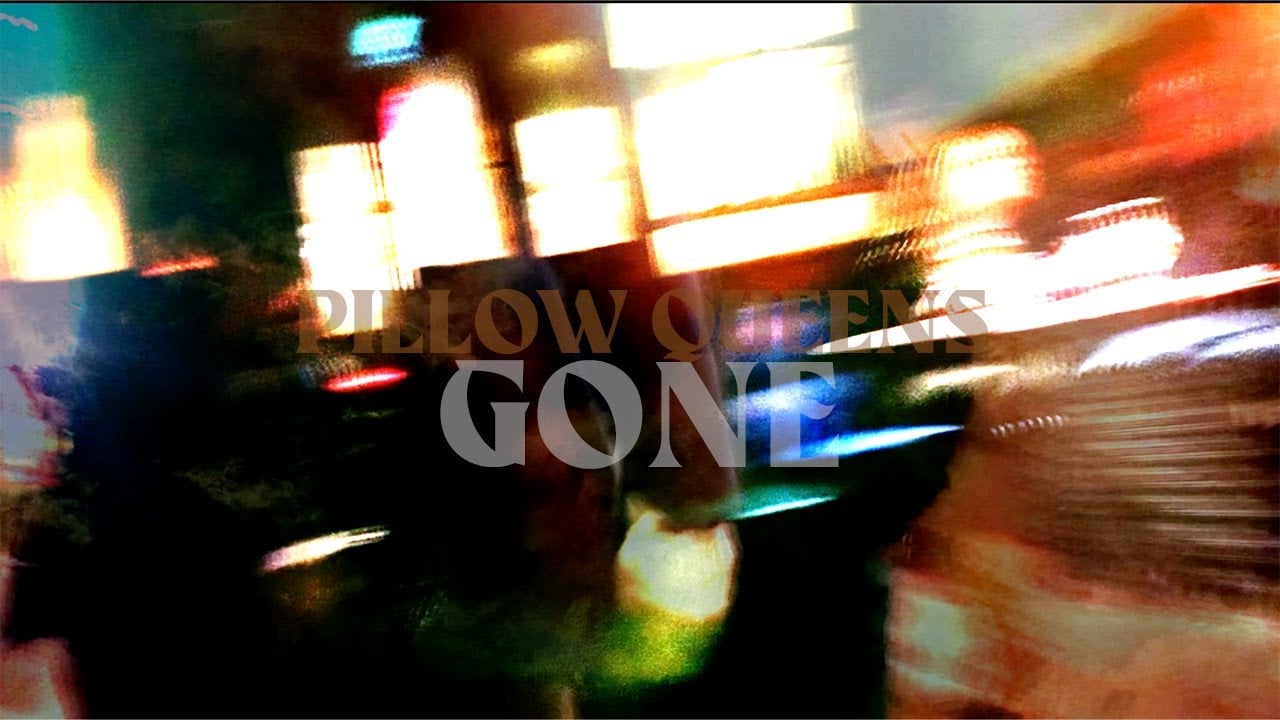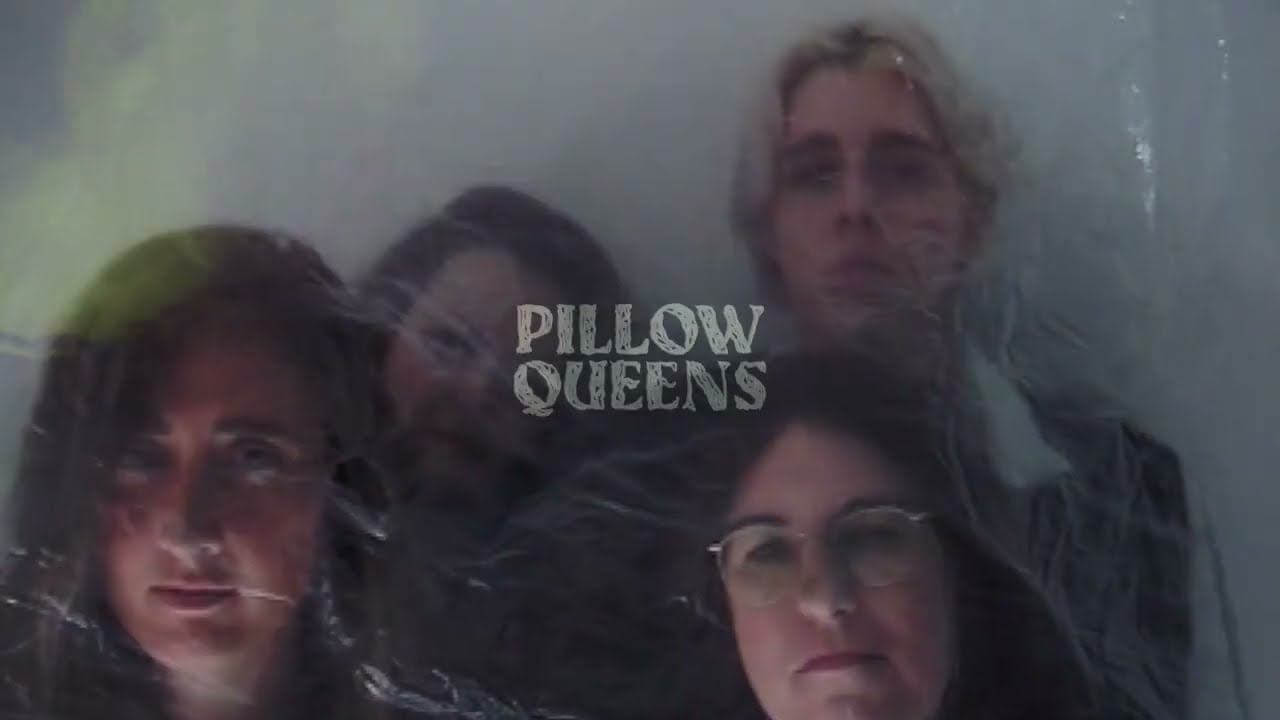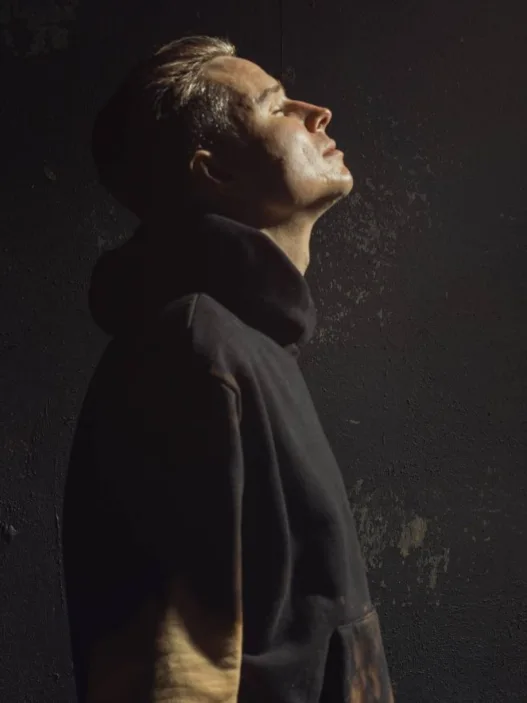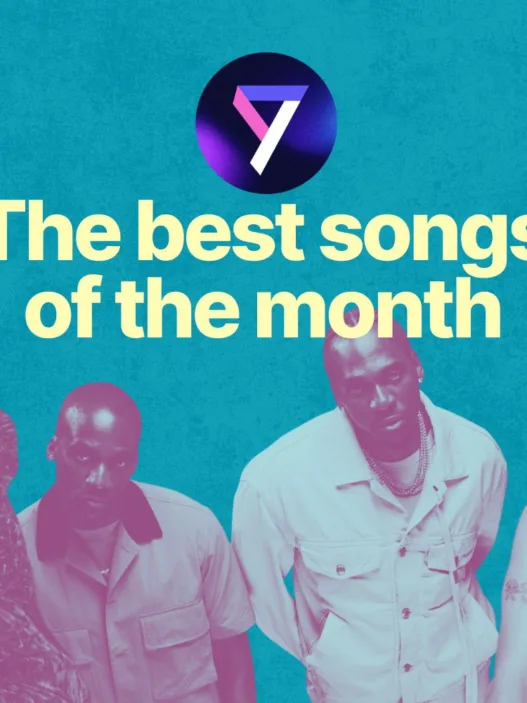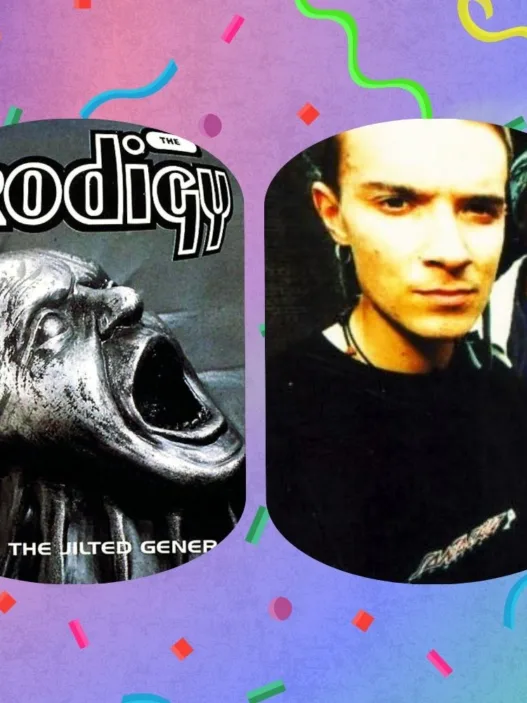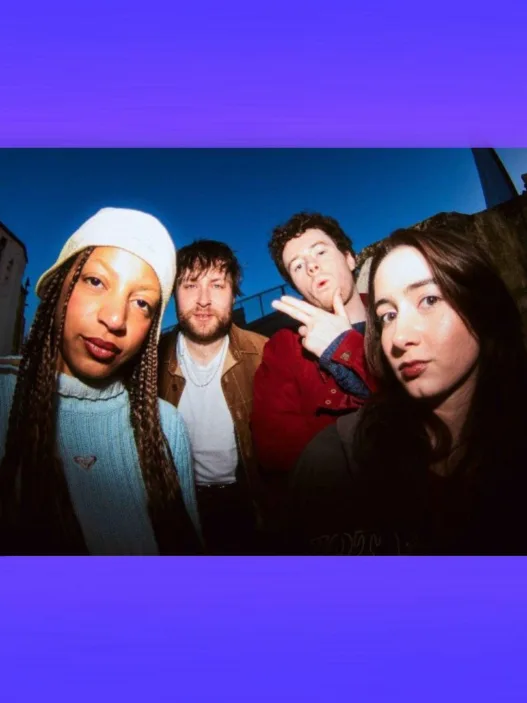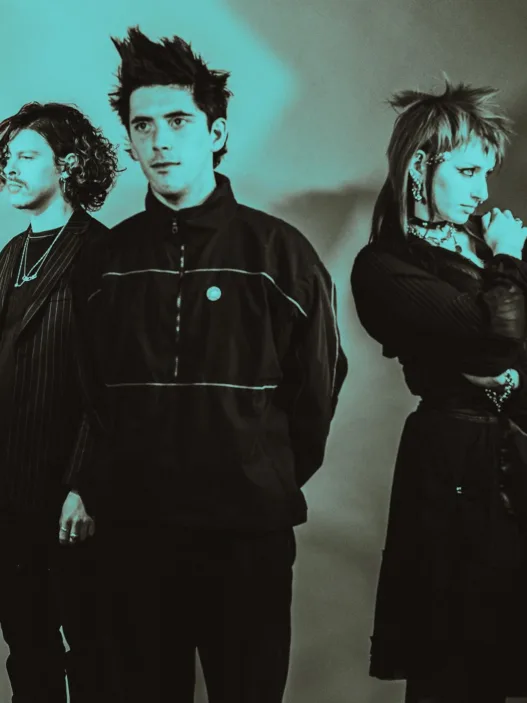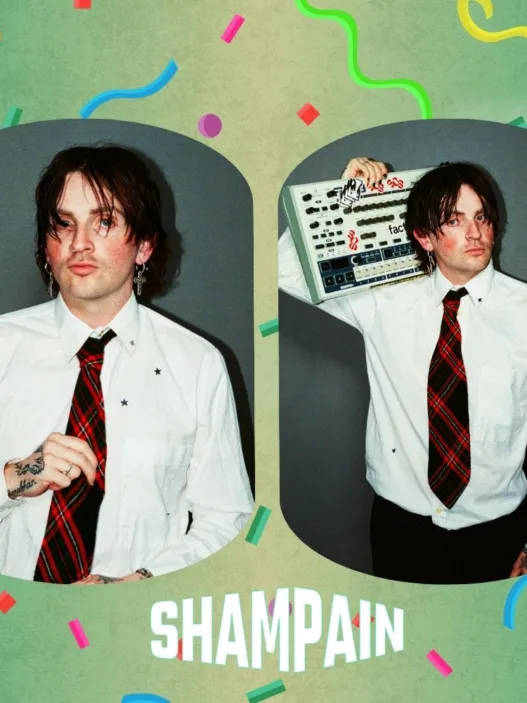Pillow Queens’ third album is out April 19th 2024.
The album title Name Your Sorrow was inspired by a line in ‘Atlantis’, a poem by Irish poet Eavan Boland, and the band’s cited inspirations while making this record include Vampire Weekend, Barbara Streisand, Frank Ocean, Tool to Lana Del Rey.
Poems by John Keats and C.S. Lewis also inform the record.
The album was produced by Collin Pastore from Nashville, who has produced boygenius, Lucy Dacus and Illuminati Hotties, and marks a new producer in the band’s album discography.
The band’s new album blurb was also written by Sinéad Gleeson, which you can read in full below.
Here’s their new single ‘Gone’, following on from ‘Suffer’ recently – you can hear the marked difference in their craft from their previous releases now.
The band says, “‘Gone'” is a song that looks into the vapid nature of brief romantic encounters and the hyperbole that can become so monotonous, it makes you jaded.” The track came about at the end of a jam session during a songwriting retreat in The Burren.
Lead vocalist, guitarist and bassist Pamela Connolly adds, “Lines like, ‘I was in your top five things to do’ convey a lack of self-worth that’s tackled throughout the album. It’s a song that showcases a vulnerability that allows for no silver linings – it’s the reality of how someone is feeling in the moment.”
Pillow Queens are announced for Iveagh Gardens in Dublin Saturday July 13th 2024.
Pillow Queens Live UK & Ireland Gigs
Jun. 5 – Leeds, UK – Wardrobe
Jun. 6 – Bristol, UK – The Fleece
Jun. 7 – London, UK – Brixton Electric
Jun. 8 – Manchester, UK – YES Pink Room
Jun. 10 – Newcastle, UK – Cluny
Jun. 11 – Glasgow, UK – Saint Lukes
Jul. 13 – Dublin, IE – Iveagh Gardens


Name Your Sorrow (LP) Tracklist
- February 8th
- Suffer
- Like A Lesson
- Blew Up The World
- Friend Of Mine
- The Bar’s Closed
- So Kind
- Heavy Pour
- One Night
- Love II
- Notes On Worth
A Dinked version of the album is also available.

Pillow Queens – Name Your Sorrow
Bio by Sinéad Gleeson.
There comes a point when every band finds themselves in a new place on the horizon. The precocious snarls of youth gone, the invincibility of being new – and Pillow Queens have been one of the most acclaimed new bands in recent years – now replaced by something else. A feeling of being unburdened and unafraid, of dropping the ballast of what other people might think. This is not to suggest a band who have softened, or rejected the music that made their name, if anything the new material places them in another realm, open to seriousness and vulnerability. The band’s timeline runs parallel to huge social and cultural change in Ireland, and queerness and Irish identity have always underpinned the songs. There hadn’t, in short, been a band quite like them before in Ireland.
An unlikely touchstone for this record was ‘Atlantis’, a poem by Irish poet Eavan Boland. Amid a swell of language, the poet searches for a specific word; “to convey that what is gone is gone forever and never found.” This quest defines the intense experiences that run through this extraordinary album. It’s there in each pocket of heartbreak, every hazy chorus of loss. The songs are a map of hurt and longing, of second-guessing and desire, the title of the record – Name Your Sorrow – is based on a line from the poem. The band believe it’s a more “blatant” album emotionally; not that they haven’t been this truthful before. But there was always metaphor to fall back on, oscillations of noise to hide behind. Name Your Sorrow is a more exposed record: no masks, no obliqueness, just a raw, open landscape of feeling. “You don’t have to scratch the surface too much to see what these songs are about”, offers Pamela Connolly. Sarah Corcoran likens it to physical experiences that are painful up to a point, but then “you get used to the pain and it has a positive inward effect.”
After forming in 2016, the band released a series of singles, honing their craft and working towards their first album, In Waiting (2020). Along the way there has been acclaim from UK and American press, many sold-out gigs and an appearance on James Corden’s Late Late Show. After signing with Canada’s Royal Mountain Records, they released a follow-up album, Leave the Light On in 2022, touring the UK, US and Europe extensively, including shows at Austin’s SXSW and supporting Phoebe Bridgers in Glasgow.
Three albums in three years indicates a serious work ethic, for Name Your Sorrow they stuck to a strict schedule. Cathy McGuinness explains that they showed up every day from 9-5, in a windowless Dublin room to just play, swap instruments and experiment. From there, they decamped to a rural retreat in County Clare along the Atlantic coastline of Ireland, to immerse themselves further. “We got on this very non-verbal kind of wavelength, where you just kind of picked up your instruments. It was very instinctive and the most communal experience we’d ever had of working.”
The palpable shift in sound and tone is possibly the result of working with a new producer, Collin Pastore from Nashville, who has produced boygenius, Lucy Dacus and Illuminati Hotties. The band holed up for three weeks at Analogue Catalogue studio in Newry, and quickly noticed that the change of scene and personnel impacted on the record. In the past, they knew exactly how a song would sound before they’d recorded it. “With Collin we’d record something, listen back and think, ‘that’s not how I thought it would sound’, but it’s better”, admits Rachel Lyons. Before Pastore’s arrival, and thanks to the 9-5 process and the retreat, by the time the band got to the studio the songs were fully developed and ready to record.
The band weren’t thinking about three-minute radio tracks – even though they’ve been a mainstay of UK radio playlists, including BBC 6 Music and BBC Radio 1 – but each song tends towards brevity. During their day-long sessions, they’d break the longer recordings into songs, and reassemble the parts, a sort of Frankenstein process. And this monstrosity – of heartache and the physicality of loss and pain – makes sense, especially in how the album sounds. Pamela says they “started quietly, and then the loudness came later”, evident in the more reflective ‘Blew Up the World’ and ‘Notes on Worth’ and the rasping guitars of ‘Gone’ and ‘One Night’. In the past, the band were against writing album songs that they couldn’t replicate live, but they’ve incorporated a grand piano and harmonica here. Analogue Catalogue studio (which is 100% female-owned) is also home to a collection of vintage equipment and amps, some of which belonged to New Order, so the band took the opportunity to play around with them, and “got their hands dirty”.
The result of combining new experimentation, heartfelt lyrics and a sound that pinballs from quiet and loud offers a kind of catharsis. Of picking through the shrapnel to find slivers of hope. Previously, the band have road-tested new tracks live, playing them to an audience and reworking them based on the crowd’s reaction. They haven’t done that this time, because the songs already feel fully formed. The band also had to unlearn the process of questioning whether a song sounded like “a Pillow Queens song”. There are definite links to the last two albums, but Name Your Sorrow feels like a triumphant step in another direction.
“I think this record is us being much more secure in our abilities. We just wanted to be true to the songs and true to ourselves”, says Rachel. Between them, they compiled a list of musical references, which are as eclectic as they are surprising: from Vampire Weekend to Barbara Streisand, Frank Ocean, Tool to Lana Del Rey. For now, listeners will have to wait to see how this whirl of influences will combine with PQ’s reputation as a consummate live band. The literary echoes don’t stop with ‘Atlantis’, extending to John Keats, and C.S. Lewis’ A Grief Observed. A second poem by Eavan Boland, ‘Love’, also made its mark, inching its way into the title of the final song. It asks, as this wild, heartsore record does over and over, Will we ever live so intensely again?

Niall Byrne is the founder of the most-influential Irish music site Nialler9, where he has been writing about music since 2005 . He is the co-host of the Nialler9 Podcast and has written for the Irish Times, Irish Independent, Cara Magazine, Sunday Times, Totally Dublin, Red Bull and more. Niall is a DJ, founder of Lumo Club, club promoter, event curator and producer of gigs, listening parties & events in Dublin.


